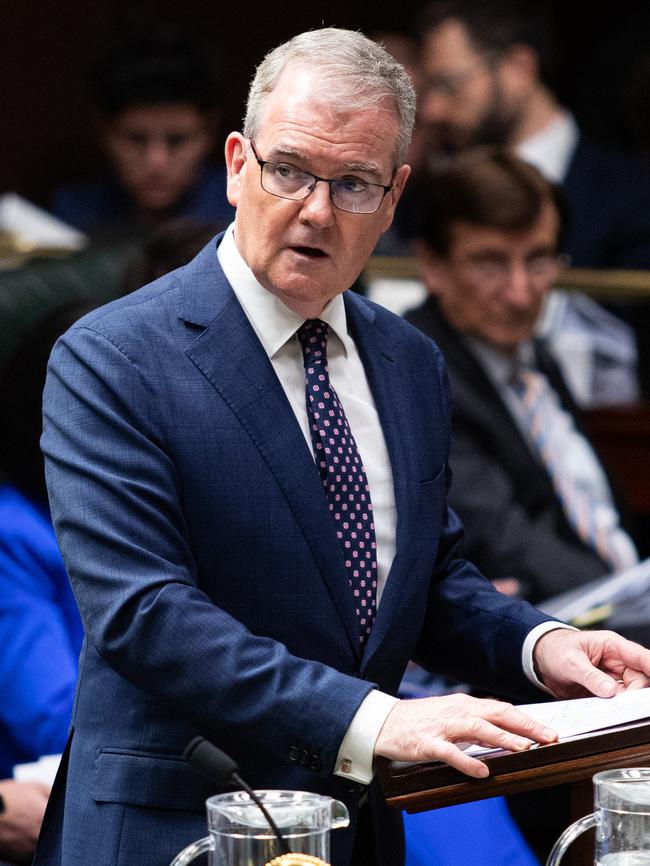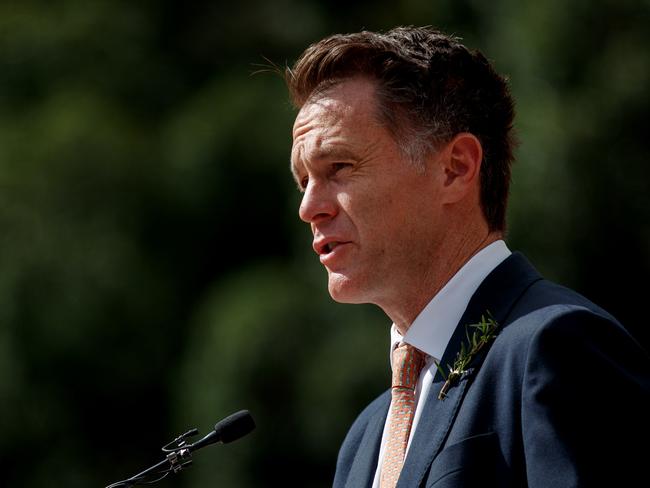NSW government introduces new penalties for ‘post and boast’ youth crime videos
Uploading videos of criminal acts to social media could see offenders face two more years in prison, Chris Minns says, as he unveils a $26.2 million package to combat regional youth crime.
NSW
Don't miss out on the headlines from NSW. Followed categories will be added to My News.
Out of control youths who post videos of home invasions and car thefts to social media will cop two extra years in jail, under a radical proposal to tackle bush crime by the NSW government.
The $26.2 million package to combat regional youth crime will include legislation for youths “posting and boasting” their criminal behaviour on social media.
It comes after The Daily Telegraph’s investigation into crime in Dubbo which revealed children as young as 10 were invading homes to steal car keys across regional NSW and were given bail multiple times because they “don’t know right from wrong”.
It also comes after the Sunday Telegraph last year revealed Indigenous elders in rural towns had given police permission to lock up kids who repeatedly commit serious crimes.
The new “posting and boasting” offences, would be similar to laws introduced in Queensland last year.


Under the proposal an offender of motor vehicle theft and break and enter offences, who posts videos of their crimes online could get an extra two years jail on top of their original punishment. The law will not apply to those who repost it.
Additionally, the government will introduce legislation amending the bail act to include a temporary test for young people between the ages of 14 and 18 who commit break and enters and vehicle thefts while out on bail.
This will mean that magistrates will need to have a higher degree of confidence the youth will not reoffend in order to grant bail.
Young offenders who commit a serious crime while already on bail for an earlier serious offence will find it harder to be bailed a second time under a trial of the new “intervention” measures.
Premier Chris Minns said the proposed changes to the bail laws needed to be done in tandem with local youth services.
“No one is interested in introducing legislation where we will lock people up and throw away the key,” he said.

“We want to make sure that money, support services and a criminal justice approach is applied right through regional NSW so that we can turn young lives around.”
MOREE TRIAL
In addition to the proposed changes to the state’s bail laws a pilot program targeting youth crime in Moree will be introduced.
An investment of $13.4 million will be put into additional judicial resources and Aboriginal Service Funding in the town.
A trial of accommodation for young people on bail will be put in place to be co-designed by government and community stakeholders, which will see young people on bail given the option of accommodation with links to local Indigenous elders and family supports.
Under the pilot community youth programs such as the PCYC will receive extra funding to remain open into the evening, in order to keep kids from roaming the streets.
Additional police resources will be sent to the Moree area in a boost to youth crime police operations.
Premier Chris Minns said if the Moree pilot was successful he would look at implementing it in other regional areas. Yet he could not say when the pilot would finish and when communities other than Moree might see help in combating youth crime.
He said there was no easy solution, he hoped a whole-of-community approach would help to change the crime trends in Moree.
“We will not leave regional communities behind and we will ensure regional communities are safe and appealing places to work, live and raise a family,” he said.
Police Association NSW welcomed the government’s bail reforms and the Moree pilot.
“These additional tools in tightening bail conditions and harsher penalties for sharing
criminal acts on social media will provide our police with another tool to reduce the
rate of repeat offenders and help support our cops in keeping their communities safe,” Police union president Kevin Morton said.
“This encompassing response from all agencies will hopefully lighten the load on our
police officers, who are expected to be the 24/7 problem solvers in the city and the
bush.”
DELAY AVERTED
Mr Minns outlined the crime crackdown on Tuesday morning, after seeing off an internal caucus challenge to his youth crime crackdown, after rebel MPs earlier broke ranks and tried to kick bail act reforms into the long grass.
The Daily Telegraph can reveal that a motion was moved in Labor’s caucus meeting on Tuesday to defer the youth crime package to a Labor committee, and not introduce the bill.
The motion — which was defeated — would have delayed action on youth crime by at least a week.
The motion was moved by Upper House MP Cameron Murphy and seconded by Parliamentary Secretary Anthony D’Adam, Labor sources said. It only secured 10 votes: from members of Labor’s “soft Left” or “Ferguson” faction.
In the caucus meeting, Attorney-General Michael Daley spoke of the urgency of the reform, particularly for the Moree community.
“We need to take action,” a Labor MP quoted Mr Daley as saying.
“They (Moree) needed it yesterday, we have to do what that community needs.”
Mr Murphy argued in caucus that the bail act reforms went against the Labor Party Platform to reduce incarceration rates for Indigenous youth.
Sources said that Mr Murphy and faction colleagues were disappointed that details of the reform package had not been given to caucus before they were publicly announced.
DON’T KNOW RIGHT FROM WRONG
The Daily Telegraph last week revealed that young offenders were getting away with violent crimes because of courts ruling they do not know right from wrong.
Another option that is set to be explored is encouraging young offenders into “supported bail accommodation,” where they can receive extra support from community leaders or elders.
Sources insisted that the NSW Government was not going to go as far as Queensland in its attempt to crack down on young offenders.
Moree, where Premier Chris Minns went on a snap visit last month, will be the location for a “pilot” program to trial new intervention methods, sources said.
Those programs were said to include keeping public venues like pools and PCYCs open longer so young people had a place to go late at night.
If the pilot is successful, the changes could be rolled out across the state.
Premier Chris Minns led discussion of the youth crime crackdown in cabinet last night, rather than leaving it up to Attorney-General Michael Daley or Police Minister Yasmin Catley, sources said.
The Telegraph revealed that young criminals were escaping punishment due to the “doli incapax” test, the Latin phrase for “incapable of evil”.
Do you have a story for The Daily Telegraph? Email tips@dailytelegraph.com.au




